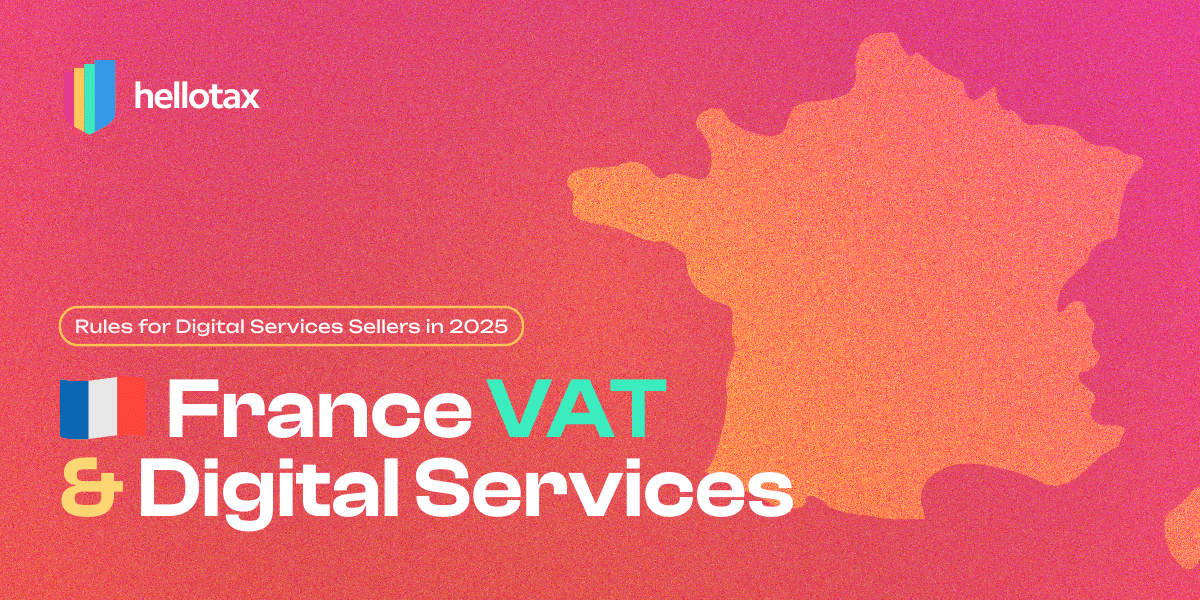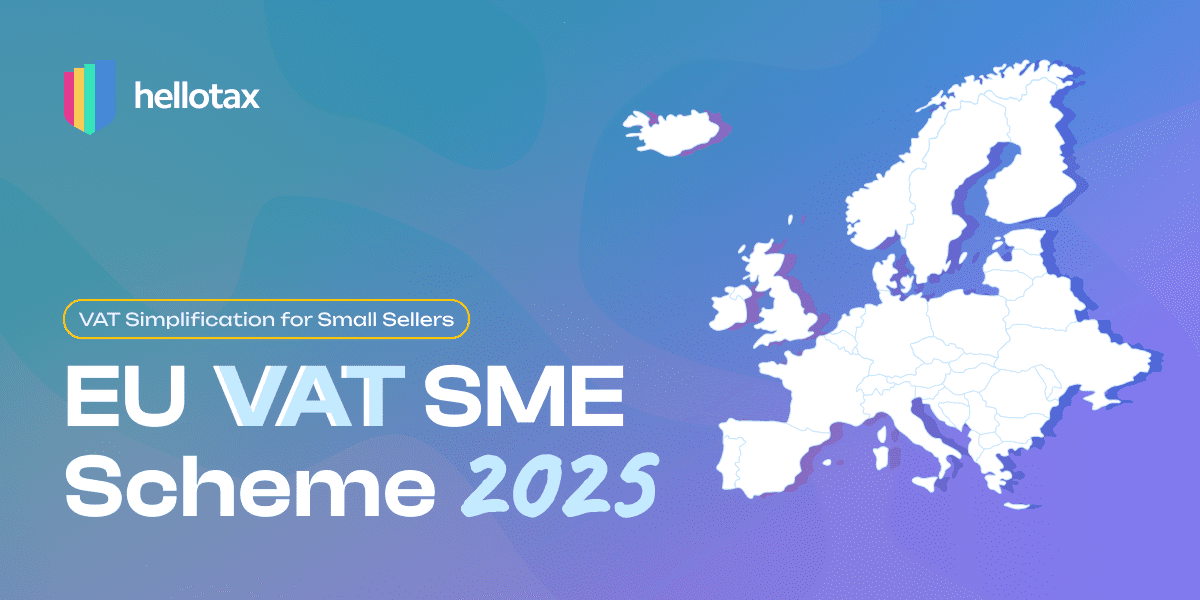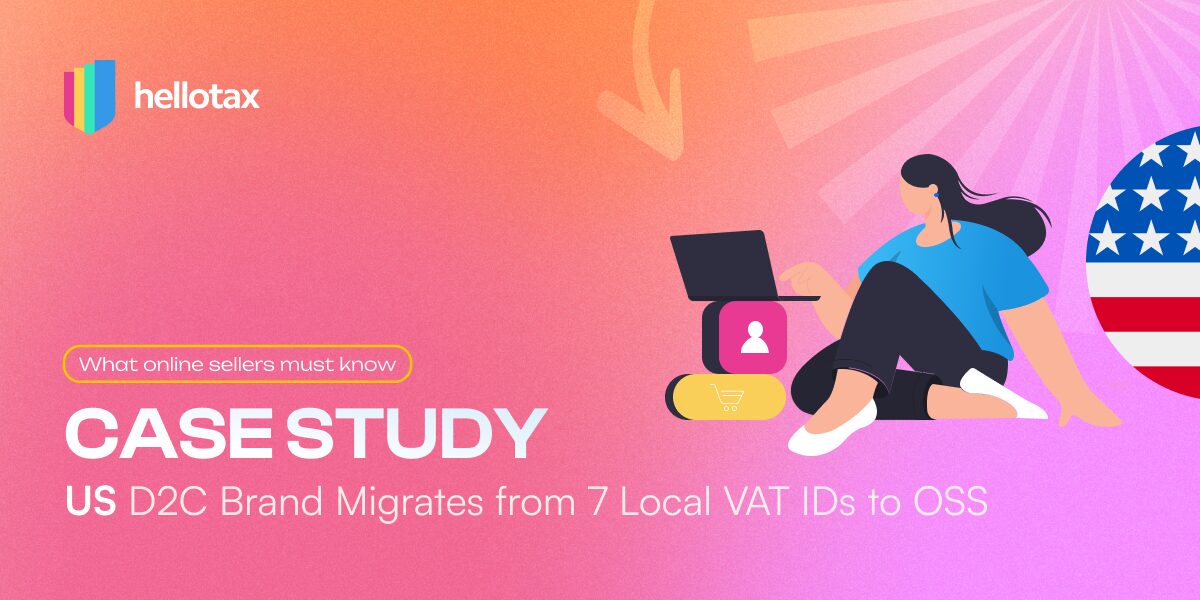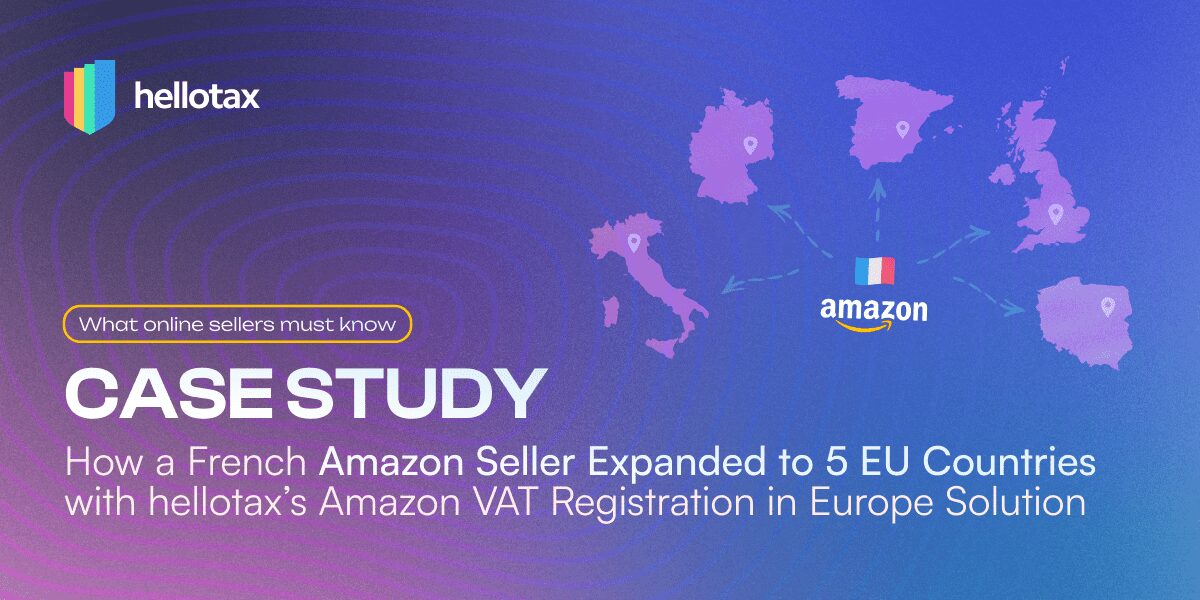Selling online courses, downloads or memberships through platforms like Teachable, Gumroad, Shopify, or Patreon? Then you’re directly affected by how the EU — and especially France under its 2025 rules — treats VAT on digital services. Here’s what every seller needs to know about EU VAT for digital platforms, who’s responsible, and how hellotax can keep you compliant.
Brenda Varela
Last Updated on 26 September 2025

Understanding EU VAT on digital platforms in 2025
The EU’s VAT system works on a simple principle: VAT is charged where the customer lives, not where the seller or platform is located. This means that if you sell a digital product or service — like an online course, e-book, webinar, or downloadable art file — to a private individual in another EU country, you’re supposed to apply that customer’s local VAT rate.
France’s 2025 VAT update under Article 259 A of its General Tax Code is a recent example of stricter enforcement. France now actively monitors virtual services and ensures VAT is charged based on the buyer’s country. But this principle applies across the entire EU.
Do platforms like Teachable, Gumroad or Patreon handle VAT for you?
Here’s where many online sellers get surprised. Not all platforms are the same when it comes to EU VAT for digital platforms.
-
Marketplaces as “deemed suppliers”
Some platforms, especially large digital marketplaces, are legally treated as the supplier. They handle VAT collection and remittance for you. Examples include:-
Etsy for digital products
-
Envato Market (ThemeForest, Codecanyon)
- Udemy is also considered as marketplace acting as the “deemed supplier
-
-
Facilitators / payment platforms
Many popular platforms for online courses, memberships, or digital downloads do not handle VAT. They simply process payments or provide storefront tools, leaving the VAT responsibility with you. This typically includes:-
Teachable
-
Gumroad
-
Kajabi
-
Thinkific
-
Podia
-
Shopify when selling digital files
-
Patreon in many cases, especially for EU creators serving EU patrons.
-
Always check your platform’s tax documentation. Many explicitly state that sellers are responsible for complying with local VAT laws. In other words, you must:
-
Register for VAT or use the OSS,
-
Charge the correct local VAT, and
-
File VAT returns, even if the sale goes through a global platform.

Book a free consultation
Our VAT experts are happy to help you. Book a free consultation today!
What changed in France under the 2025 rules?
Since early 2025, France has been enforcing updated VAT territoriality rules on digital services, tightening the EU’s long-standing “destination principle.” This means that if you provide virtual or digital services to French consumers — even from outside the EU — you must charge French VAT, collect proof of your customer’s location, and report it under EU VAT rules.
This enforcement is part of the EU-wide push to reduce VAT fraud in digital markets. While France has been the latest to issue stronger audits, the same rules apply across the entire EU, and other tax offices are following this model.
Check our last article on this topic here.
How to know if your platform covers your EU VAT obligations
Many online sellers assume that by using a platform, VAT is handled automatically. But unless your platform is a deemed supplier under EU law (like Etsy for digital items), you’re typically still on the hook.
And for solo creators or online educators navigating VAT alongside personal income, getting expert support can make all the difference. As Trevor Randall, a certified financial planner at Randall Wealth Group, notes, “Digital entrepreneurs often underestimate how platform-based income impacts their broader financial picture. Understanding how EU VAT fits into your cash flow, savings goals, and tax strategy is essential to long-term stability.”
👉 Checklist to find out:
-
Does your platform say it collects and remits EU VAT on your behalf?
-
Do you see separate VAT charges broken out on customer invoices?
-
Can you download tax reports showing the local VAT paid by each buyer?
-
Does the platform register under the OSS in the EU for you?
If the answer is no, then VAT on digital services stays your responsibility — even if you’re selling through a popular global platform.
Check the EU rules here.
How to stay compliant with EU VAT for digital platforms
Here’s how to protect your business from penalties and tax audits under EU rules (and new local crackdowns like France’s in 2025):
-
Register under the One Stop Shop (OSS).
OSS lets you handle VAT for all your EU B2C sales through a single EU VAT registration and a single quarterly return. -
Apply the correct local VAT rates.
This means your checkout needs to calculate VAT based on your customer’s country. A French buyer pays French VAT, a German buyer pays German VAT, and so on. -
Collect at least two pieces of location evidence.
The EU requires you to prove where your customer lives, using data like billing address + IP country. -
Issue compliant invoices.
They must show the applied VAT rate, customer location, and your OSS or local VAT number. -
Keep all records for at least 10 years.
This is standard under EU VAT rules and crucial if tax authorities audit you.
How hellotax helps automate your compliance
Dealing with different rates, multiple countries, and new digital reporting (like under the EU’s ViDA rollout) can overwhelm even experienced sellers. That’s where hellotax comes in.
With hellotax, you get:
✅ Automatic calculation of VAT rates by customer location
✅ Full OSS registration and quarterly filings across the EU
✅ Compliant invoicing that passes audits under France’s 2025 rules
✅ Peace of mind — our local experts and digital tools keep you aligned with EU VAT law, no matter what platform you use.
Key takeaway
Even if you sell your digital products, online courses, or memberships through global platforms like Teachable, Gumroad, Kajabi, Patreon, or Shopify, EU VAT is often still your responsibility. Under stricter rules like France’s in 2025, making sure you apply the correct VAT, use OSS, and keep full records is essential.
👉 Let hellotax handle it all, from automated VAT calculations to seamless OSS filings, so you can focus on growing your business across Europe without worrying about tax penalties. Contact us now for a free consultation.







Thanks for clarifying how VAT applies across EU borders. I wasn’t aware that platforms like Gumroad and Teachable didn’t automatically handle VAT in all cases — that’s a big deal for indie creators like myself.
It is, indeed. VAT compliance for digital services is quite complex although the EU is trying to simplify it as it is definitely a growing market. You may want to check our previous article on the topic https://hellotax.com/blog/navigating-vat-for-digital-services-in-the-eu/